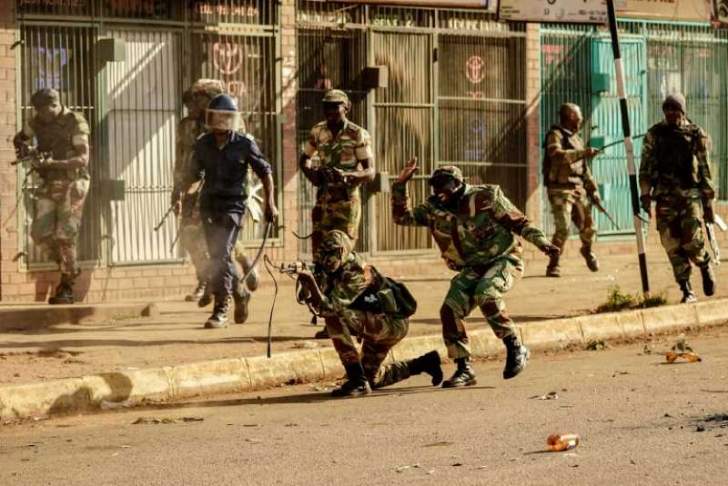Political experts claim that ending violence in Zimbabwe is difficult because the State is mainly to blame for the “overwhelming amount of violence” used by state institutions against citizens.
According to political analyst, Effie Ncube, Zimbabwe had experienced violent politics for more than 70 years, from the 1950s to 2023, which showed a culture of political violence has set in the country.
“Close to a century, people have been beating up each other and killing each other in Zimbabwe. Institutions that are supposed to be institutions of democratic governance are now institutions of violence, repression, torture and organised violence,” he said during a discussion on organised torture and violence in relation to the 2023 elections at the Bulawayo Media Centre recently.
“The organised torture that we are seeing is very much centered around state institutions and that makes it very difficult to stop because these state institutions are supposed to be the ones with capacity to remove violence in society. But the State is responsible first and foremost for an overwhelming amount of violence that is deployed against the people.”
Ncube stated the police will use ‘extreme’ violence against opposition members, which is selective application of the law.
“People from different political parties are not subjected to equal protection of the law. Some are treated differently because they are viewed as part of the State. Ask yourself how many Zanu PF meetings have been denied by the police. Go to the police and see whether you will see any meeting that was denied because to them Zanu PF is the State, Zanu PF is the government and therefore if Zanu PF is informing them about a meeting, it is the State informing them and the police can’t stop the State from operating,” he cited.
The political analyst highlighted that understanding this context is critical because people will not be free as long as the State is accountable for violence.
Using South Africa as an example, Ncube stated that the black led administration attempted to reform institutions inherited from the apartheid regime in 1990 from 1996.
“Instead of suppressing people, you see the police in South Africa, except for some incidents like Marikana, accompanying a demonstration, something that you’ve never seen in this country where the opposition parties are led by and protected by the police. I don’t expect to see it anytime soon because of the nature of our police,” he said.
According to Ncube, based on the pattern of elections, violence is expected this year as well.
“Why do we keep having violence during the elections? Because it is rewarding, simple! No one is punished for violence in this country except for a few small fish who don’t matter. The big fish who matter are never punished. As long as there is a violent election, someone will end up being an MP. Many people get into Parliament through violence. As long as one gets a seat, becomes a president, senator, MP, or councillor through violence, they will retain that seat through violence,” Ncube said.
“Violence pays in Zimbabwe. Electoral violence is rewarding in Zimbabwe and as long as that is the case and we are not punishing electoral violence, political violence is going to continue. Why would you change such a strategy that is working for you? If I can beat up people and remain in power, I will do the same in the next election. Those that want to come into power, also have to cross flaming arrows because this country is seriously violent.”
Ncube observed that during colonial times, people sought power through democratic means in the 1950s but were denied the right to a free and open election until they took up arms.
“So the fact that they fought themselves into office, literally, that’s the only thing they understand when you talk about power. They have no other understanding and have never practiced democracy. There are people who are in government who genuinely do not understand what democracy looks like,” said the political analyst.
“They have no idea and no clue because they were never attempting to reform even what we call attitudes because you don’t just reform institutions which we don’t have. You also need to reform attitudes and the value systems of the country.”

